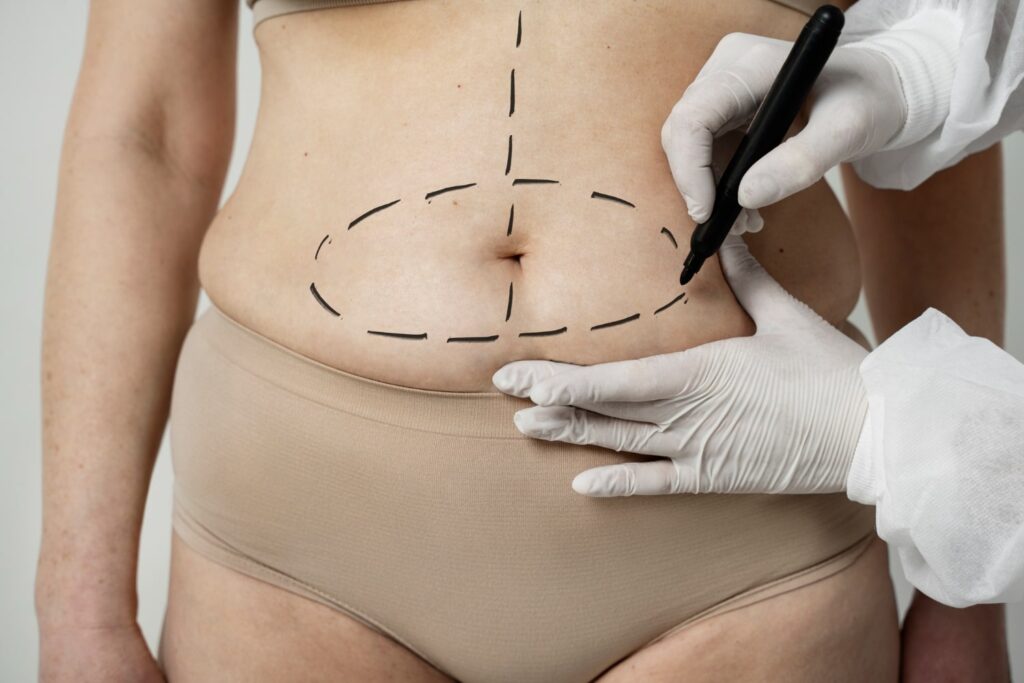What is the death possibility after gastric sleeve surgery?

Renovated Me BLOG POSTS What is the death rate after gastric sleeve surgery? The risk of death following gastric sleeve surgery (sleeve gastrectomy) is generally low, but like any surgical procedure, there is a small risk of complications that can potentially lead to fatal outcomes. The exact mortality rate can vary depending on several factors, including the patient’s overall health, the skill and experience of the surgical team, and the quality of post-operative care. It’s important to note that advances in surgical techniques and improvements in patient care have reduced the risk of death associated with bariatric surgeries, including gastric sleeve surgery. The reported mortality rates for gastric sleeve surgery are typically less than 1%, and in many cases, it is even lower. However, it’s crucial to keep in mind that the risks and potential complications associated with the surgery should be thoroughly discussed with a healthcare provider during the pre-operative evaluation. Patients should be aware of these risks and make an informed decision about whether the benefits of the surgery outweigh the potential risks for their specific situation. Some factors that can increase the risk of complications and, in rare cases, mortality after gastric sleeve surgery include: Obesity-related health conditions: Patients with severe obesity often have comorbidities such as heart disease, diabetes, and sleep apnea, which can increase the risk of surgical complications. Age: Older patients may be at a slightly higher risk of complications, although age alone is not a determining factor. Overall health: Patients with underlying medical conditions or significant health issues may be at a higher risk of complications. Surgical experience: The experience and skill of the surgical team performing the procedure can influence the outcome. Choosing a board-certified bariatric surgeon with extensive experience in performing gastric sleeve surgery is essential. Compliance with post-operative guidelines: Following dietary and lifestyle recommendations after surgery is crucial to minimize the risk of complications and ensure a successful outcome. Access to prompt medical care: In the event of complications, timely access to medical care and appropriate intervention can significantly impact the outcome. It’s important for individuals considering gastric sleeve surgery to work closely with their healthcare provider to assess their individual risk profile and discuss the potential benefits and risks associated with the procedure. Additionally, attending regular follow-up appointments and adhering to post-operative guidelines can help minimize the risk of complications and promote a safe recovery.
Is Turkey safe to have surgery there?

Renovated Me BLOG POSTS Is Turkey safe to have surgery there? The safety of having surgery in Turkey, like in any country, depends on various factors. Turkey is known for its growing medical tourism industry, offering a wide range of medical procedures, including cosmetic surgery and bariatric surgery, at competitive prices. However, individuals considering surgery in Turkey should carefully research and consider the following: Medical Facility and Surgeon Selection: Choose a reputable medical facility and board-certified surgeon with extensive experience in the specific type of surgery you require. Check qualifications, reviews, and patient testimonials. Accreditation: Ensure that the hospital or clinic is accredited by relevant medical organizations or regulatory bodies. Accreditation can indicate a commitment to high medical standards. Language Barrier: Language differences can be a challenge. It’s important to have clear communication with your healthcare team, so consider arranging for interpreters if needed. Pre-Operative Evaluation: Have a thorough pre-operative evaluation, including a discussion of your medical history and any potential risks associated with the surgery. Travel Considerations: Plan your travel logistics, including flights, accommodation, and transportation to and from the medical facility. Consider the time needed for recovery before returning home. Post-Operative Care: Ensure that you have access to appropriate post-operative care and follow-up appointments, either in Turkey or with a local healthcare provider. Health Insurance: Check whether your health insurance covers surgeries abroad. If not, consider purchasing medical travel insurance to cover unexpected complications or emergencies. Safety and Hygiene: Ensure that the medical facility adheres to high standards of safety, cleanliness, and infection control. Research: Read about other patients’ experiences, consult with medical professionals in your home country, and gather as much information as possible to make an informed decision. Legal and Ethical Considerations: Familiarize yourself with the legal and ethical aspects of medical tourism in Turkey, including potential recourse in case of malpractice or complications. While many people have successful surgeries in Turkey, it’s essential to conduct thorough research, seek recommendations, and make informed choices to ensure your safety and a positive surgical outcome. Consulting with a trusted healthcare provider in your home country can also be valuable in making the right decision for your specific medical needs.
Choosing the Right Surgeon: What to Look for in a Bariatric Specialist?

Renovated Me BLOG POSTS Choosing the Right Surgeon: What to Look for in a Bariatric Specialist? • Highlight the significance of selecting a qualified and experienced bariatric surgeon. • Explain that the choice of surgeon plays a crucial role in the success and safety of weight loss surgery. Section 1: Qualifications and Credentials1.1. Board Certification • Emphasize the importance of choosing a surgeon who is board-certified in bariatric surgery or a related field. 1.2. Specialization in Bariatric Surgery • Discuss the benefits of selecting a surgeon with specialized training and experience in bariatric procedures. Section 2: Experience and Track Record2.1. Years of Experience • Consider the advantages of choosing a surgeon with a proven track record and years of experience in performing weight loss surgeries. 2.2. Surgical Volume • Explain the significance of surgeon experience and high surgical volume in terms of patient outcomes. Section 3: Hospital and Surgical Facility3.1. Hospital Affiliation • Discuss the importance of the surgeon’s affiliation with a reputable hospital known for its bariatric program. 3.2. Accreditation • Explain the value of choosing a surgeon who operates in accredited surgical facilities, which meet strict safety and quality standards. Section 4: Patient Testimonials and Reviews4.1. Patient Success Stories • Highlight the importance of reading and considering patient testimonials and success stories. 4.2. Online Reviews • Discuss the role of online reviews and how to interpret them when evaluating a surgeon’s reputation. Section 5: Consultation and Communication5.1. Initial Consultation • Describe what patients should expect during an initial consultation with a bariatric surgeon. 5.2. Communication Style • Explain the significance of effective communication between the surgeon and patient, including discussing expectations and addressing concerns. Section 6: Approach and Techniques6.1. Surgical Techniques • Discuss the different weight loss surgery options and the surgeon’s proficiency in each technique. 6.2. Personalized Approach • Highlight the importance of a surgeon’s ability to tailor surgical plans to individual patient needs and goals. Section 7: Post-Operative Care and Support7.1. Follow-Up and Aftercare • Explain the role of post-operative care, follow-up appointments, and ongoing support in the patient’s long-term success. Section 8: Cost and Insurance8.1. Financial Considerations • Address financial aspects, including the cost of surgery, insurance coverage, and payment options. • Summarize the key factors to consider when selecting a bariatric surgeon. • Encourage readers to prioritize their safety and well-being by thoroughly researching and choosing a qualified specialist. This comprehensive guide will assist individuals in making an informed decision when selecting a bariatric surgeon, ultimately contributing to the success and safety of their weight loss journey.
What to Expect Before, During, and After Gastric Sleeve Surgery?

Renovated Me BLOG POSTS What to Expect Before, During, and After Gastric Sleeve Surgery? • Provide an overview of gastric sleeve surgery and its role in weight loss. • Explain the purpose of the guide: to prepare individuals for every stage of the surgical process. Section 1: Before Gastric Sleeve Surgery1.1. Consultation and Evaluation • Describe the initial consultation with a healthcare provider or bariatric specialist, where eligibility for surgery is assessed. 1.2. Pre-Operative Assessments • Detail the medical evaluations, tests, and screenings that patients may undergo in preparation for surgery. 1.3. Nutritional and Lifestyle Changes • Explain the importance of making dietary and lifestyle adjustments before surgery to improve outcomes and reduce risks. 1.4. Psychological Evaluation • Discuss the psychological assessments that some patients may undergo to ensure readiness for the surgery. Section 2: The Day of Gastric Sleeve Surgery2.1. Pre-Surgery Preparation • Describe the pre-operative instructions, including fasting and medication adjustments. 2.2. Surgical Procedure • Outline the steps of the surgical process, including anesthesia and the creation of the gastric sleeve. 2.3. Duration and Anesthesia • Explain the typical duration of the surgery and the type of anesthesia used (general anesthesia). Section 3: Immediately After Gastric Sleeve Surgery3.1. Recovery Room • Discuss the immediate post-operative period and the patient’s time in the recovery room. 3.2. Pain Management • Explain how pain and discomfort are managed during the early recovery phase. Section 4: Hospital Stay and Early Recovery4.1. Hospital Stay Duration • Detail how long patients typically stay in the hospital after surgery. 4.2. Diet Progression • Describe the post-operative diet stages, beginning with clear liquids and advancing to solid foods over time. 4.3. Activity and Mobility • Discuss the importance of early ambulation and gentle physical activity during the hospital stay. Section 5: Weeks and Months After Gastric Sleeve Surgery5.1. Continued Dietary Adjustments • Explain how dietary guidelines evolve in the weeks and months following surgery, including portion control and nutrient intake. 5.2. Exercise and Physical Activity • Discuss the importance of incorporating regular exercise into the post-operative routine. 5.3. Psychological and Emotional Support • Address the emotional aspects of recovery, including body image changes and adapting to a new lifestyle. Section 6: Long-Term Follow-Up and Maintenance6.1. Follow-Up Appointments • Emphasize the significance of attending regular follow-up appointments with the healthcare provider or bariatric team. 6.2. Lifelong Dietary and Lifestyle Changes • Reiterate that ongoing dietary and lifestyle modifications are crucial for maintaining weight loss and health improvements. Conclusion • Summarize the key takeaways from each stage of the surgical process. • Encourage readers to seek professional guidance, adhere to medical advice, and stay committed to their weight loss journey. This comprehensive guide provides individuals considering gastric sleeve surgery with a detailed understanding of what to expect at each stage of the process, helping them prepare both physically and mentally for the surgery and post-operative recovery.
Best Tummy Tuck Recovery

Renovated Me BLOG POSTS Tummy Tuck Recovery It takes six weeks for the body to heal from tummy tuck surgery. Swelling may last several weeks, but most patients are fully recovered in three months or less. At this point, it’s safe to begin exercising and resuming normal activities. <br> You will need to take about 4 to 6 weeks off work and exercise. You will not be able to drive for a few weeks after the operation (your surgeon and insurance company can advise you about this). It takes about 6 weeks to fully recover and to see the full effect of a tummy tuck Recovery tips following tummy tuck are: Take pain medication as directed. Wear a compression garment. Use ice packs to minimize pain and swelling. Limit jerky and quick movements. Move around the house to keep your circulation going. Drink lots of water. Get adequate bed rest. Don’t stay in one position too long. Your tummy tuck recovery kit Post-surgery compression garments. Over-the-counter or prescription pain medications. Bandages and gauze pads. Antibiotic cream. Hand sanitizer. Water bottle. Ice packs It takes about 6 weeks to fully recover and to see the full effect of a tummy tuck. You’ll usually need to wear a special type of corset or tummy-control pants for 6 weeks, to encourage your skin to heal properly and to reduce any swelling. Need more information about Tummy Tuck? For more information about our Tummy Tuck surgery package, you can contact us and get more details.
The Best Sources of Vitamin B12

Renovated Me BLOG POSTS The Best Sources of Vitamin B12 Why you need vitamin B12? Vitamin B12 is a water-soluble vitamin that aids in many essential bodily functions. It is absorbed in the stomach and then makes its way to your blood and cells. Any extra vitamin B12 is stored in your liver, for your body to save for the future. Vitamin B12 is an important vitamin for: Forming healthy red blood cells. Functioning of your central nervous system. Normal brain function. Producing DNA. What are the symptoms of vitamin B12 deficiency? If you don’t produce enough of a protein called intrinsic factor that helps your body absorb B12 or if you don’t eat enough B12 foods, you may develop a deficiency. You may also have a higher risk of developing a vitamin B12 deficiency if: You are 65+. You are a strict vegan. You are pregnant. You’ve had bowel-removal surgery. You take medication for diabetes. You take medication for heartburn. If you’re experiencing any of the following symptoms, you may have a B12 deficiency. Consult with your doctor if: You’re more pale than usual or have jaundiced skin. You feel constantly fatigued/weak. You have ‘pins and needles’ sensations in your hands and feet. You feel out of breath or dizzy. Your vision becomes blurry. You experience mood swings or personality changes. What foods are high in vitamin B12? Vitamin B12 is found in: Milk: Dairy and (some) non-dairy brands are fortified with B12. If you’re allergic to dairy and drink natural milk like almond, soy, oat or cashew, just be sure to check the nutrition label for B12. Fortified cereals: If you identify as a vegan or vegetarian, some cereals are a great source of B12. Eggs: Egg yolks contain more B12 than egg whites. It’s important to eat the whole egg if you are trying to increase your B12 intake. Yogurt: Fun fact: Eating full-fat plain yogurt has been shown to improve vitamin B12 deficiency because the vitamin is more easily-absorbed in dairy products. If you’re looking for fewer calories, fat-free Greek yogurt is a healthier option that also provides a solid amount of B12. Salmon: Many people who try to eat healthier include salmon in their diets. It has a ton of omega-3 fatty acids and protein, as well as B vitamins. Just half of a cooked salmon fillet (6 ounces) contains more than 200% of the daily value for B12. Tuna: Whether you’re a fan of canned or cooked tuna, both provide many essential nutrients, including B12. If canned is your preference, opt for light tuna in water. Beef: Eating 3 ounces of red meat one to two times per week is recommended. Liver and kidneys: Organ meats are incredibly rich in B12, but also contain a large amount of cholesterol. For this reason, people who include organ meat in their diet to do so in moderation. Clams: Also, a lean source of protein, iron and antioxidants, a 3.5-ounce serving of baby clams provides over 4,000% of vitamin B12’s daily value. Source: health.clevelandclinic.org Need more information about surgeries? For more information about our you can contact us and get more details.
Is Gastric Sleeve Safe in Turkey?

Renovated Me BLOG POSTS Is Gastric Sleeve Safe in Turkey? Gastric sleeve in Turkey is performed using methods as same as the ones in the US and the UK (mostly laparoscopic procedure). The main result of this effective surgery is the reduction of the patient’s stomach. Therefore, food intake will be less than before. Why Do People Go to Turkey for Gastric Sleeve? Affordable prices (in comparison with the US and the UK) in addition to high-quality medical technology World-renowned achievements of Turkish physicians The combination of tourism experience and health services for both patients and their families No waiting lists High-quality clinics and hospitals Exceptional medical care in addition including attention to patient safety, foreign patients in particular Due to the progress of tourism in Turkey as its main industry, there are hundreds of luxury, comfortable hotels for your accommodation before and after the surgical treatment Patients will be thoroughly examined and their health will be evaluated before going back to their countries. Following surgery, you will be evaluated by professionals and given nutritional guidance before returning to your home country. Need more information about surgeries? For more information about our you can contact us and get more details. Gastric Sleeve Hospitals in Turkey Bariatric surgery cannot be performed in any hospital as it is a very sensitive and special operation. Therefore, you must find out the suitability of your surgeon’s hospital for operation. – The operation room must have certain equipment, international standards (ISO international standards), and medical facility. – The score of the hospital’s intensive care unit must be at least grade 2. You can ask the name of the hospital and check its qualifications. – The number of intensive care beds must be sufficient. – In addition to your surgeon and their team, it is better there should be full-time physicians at the hospital, especially experts in the cardiology department. Make sure to ask about this and also check it for yourself. – It would be better if there’s interventional radiology as well. – Operating table and patient beds should be suitable for obese patients. – You might have to stay 1 or 2 days in the hospital. Make sure it has enough facilities for you and your companion. Disadvantages of Gastric Sleeve in Turkey Not knowing the Turkish language may cause you some problems when communicating with some staff or people in the streets. Not being close to home increases your need for a companion. So, bringing another person might be an extra cost. Checking specialist surgeons’ credibility is a bit difficult. And of course, options are not limited. Not being able to have face to face follow-up sessions with your surgeon and their team
What are the Pros and Cons of Gastric Sleeve and Gastric Bypass?

Renovated Me BLOG POSTS What are the pros and cons of Gastric Sleeve and Gastric Bypass? One of the biggest advantages, which applies to both gastric sleeve surgery and gastric bypass is that these procedures significantly reduce your risk for obesity-related conditions, such as: type 2 diabetes high blood pressure (hypertension) high cholesterol (hyper lipidemia) heart disease stroke fatty liver disease Pros and cons for gastric bypass surgery Gastric bypass pros You can lose up to 80 percent of your excess body weight. Intestinal bypass results in fewer calories absorbed. You lose weight faster than with gastric sleeve surgery. Although difficult, it can be reversed. Gastric bypass cons It’s a two-step surgery so there’s a higher risk of complications. The recovery is longer than for gastric sleeve surgery. Intestinal bypass results in the malabsorption of nutrients and vitamins, which can lead to deficiencies. Dumping syndrome is more common. Which one is right for you? The type of bariatric surgery that’s right for you depends on several factors, including: your weight your medical history any health conditions you may have your expectations Talk with your doctor about these factors and whether bariatric surgery is an option for you. Together you can decide if one type of surgery is better suited for you. What about dietary changes? The dietary changes you’ll have to make after gastric sleeve surgery and gastric bypass are basically the same. For about a week after your surgery, you’ll only take in liquids. For the next 3 weeks, you’ll be able to eat pureed food and then soft food. Two months after surgery, you’ll be able to eat regular food. The main difference in postoperative diet is the size of your stomach pouch, which affects how much you can eat. Gastric sleeve surgery creates a pouch that holds about 3 ounces, which is roughly the size of a hockey puck. With gastric bypass, your pouch holds about 1 ounce, or about the size of a golf ball. Important dietary guidelines that you’ll need to follow after your gastric sleeve or gastric bypass surgery include: eating small amounts and stopping when you’re full chewing your food thoroughly eating slowly taking the recommended vitamins and supplements staying hydrated by drinking enough water sipping fluids rather than drinking quickly avoiding food that’s difficult to digest, such as tough meat and bread avoiding carbonated beverages Your pouch will stretch over time. It’s important not to overeat after bariatric surgery because your pouch can stretch enough for you to regain the weight you lost. Source: www.healthline.com Need more information about surgeries? For more information about our you can contact us and get more details.
Which is better Gastric Sleeve or Gastric Bypass?

Renovated Me BLOG POSTS Which is better Gastric Sleeve or Gastric Bypass? Bariatric surgery options: You are eligible for bariatric surgery if your body mass index (BMI) is: 40 or higher. Between 35 and 40, and you have diabetes, high blood pressure, high cholesterol, fatty liver disease or sleep apnea. Between 30 and 35, and you have uncontrolled diabetes. Need more information about surgeries? For more information about our you can contact us and get more details. Gastric Bypass Surgery Gastric bypass surgery: The basics: Roux-en-Y gastric bypass surgery is an operation that shrinks your stomach, along with the amount of calories and fat your body absorbs. Who it’s good for: People with severe reflux disease: Acid reflux often improves after gastric bypass surgery. People with high BMIs: People lose more weight with gastric bypass. People with diabetes. Complications specific to gastric bypass include: a higher risk of nutritional deficiencies due to bypassing part of your small intestine increased sensitivity to alcohol stomach ulcers bowel obstruction stomach perforation Gastric Sleeve Surgery The basics: Also known as the gastric sleeve, sleeve gastrectomy surgery involves operating only on the stomach. Surgeons remove around 80 to 85% of it, leaving a smaller “sleeve” in its place. Who it’s good for: People who have had multiple abdominal surgeries. High-risk surgical patients: Sleeve gastrectomy is easier on patients than gastric bypass: The anaesthesia time is shorter, and the recovery is faster. High-risk patients include people with severe heart disease or lung problems, plus transplant candidates or recipients. People who weigh more than 450 to 500 pounds: Too much fat can limit the amount of space inside the abdomen. Surgeons need room to reroute the GI tract. People on multiple medications to treat psychiatric illness: Gastric bypass can affect how your body absorbs — and responds to — medications. Complications specific to gastric sleeve surgery include: acid reflux leakage of stomach fluid narrowing (stenosis) along the stomach pouch stomach obstruction Source: https://health.clevelandclinic.org/how-to-choose-the-best-bariatric-surgery-solution/
What is Gastric Bypass – ROUX-EN-Y GASTRIC BYPASS?

Renovated Me BLOG POSTS What is Gastric Bypass/ROUX-EN-Y GASTRIC BYPASS? The Roux-en-Y gastric bypass as a bariatric, or weight loss operation, has been studied for over 50 years. As such, it is often referred to as the “goldstandard”. It is important to understand that this designation is not meant to imply it is the best operation for everyone. Every procedure has its own characteristics; the choice of operation should only be made after a thorough evaluation of your particular health issues and potential health risks by your physicians. It is important that you find a surgeon with the proper qualifications and experience to advise you of all your options. Because of the long history of the gastric bypass, it is often used as a reference point to evaluate other operations and interventions, thus, goldstandard. The standard gastric bypass is performed using minimally invasive techniques known as laparoscopic surgery. It is performed routinely in less than one or two hours and hospital stay is one or two days. The incisions, typically four or five are a cm or less in size, so recovery is very quick, and pain is minimal. In the proper center, this is a very safe operation. Need more information about surgeries? For more information about our you can contact us and get more details. The procedure consists of making a small gastric pouch and diverting food past the majority of the stomach and a small portion of the small intestine. Nothing is removed, so this operation can be reversed if necessary. How this operation works is still a matter of debate and ongoing research. One would think: “of course, small stomach…will eat less.” But this is not the case. The small gastric pouch is not used for storage, or to slow down the passage of food. To the contrary, food passes more quickly through the intestine and actives specialized cells, L-cells, further along the gut that are important in the regulation of blood glucose and satiety. Hormones produced by these cells act directly on the pancreas, the liver and the brain. Therefore, the gastric bypass is not mechanically restricting or causing malabsorption of food; it works to restore your body’s natural set point through a highly complex system which is still under investigation. It is important to understand that there are many variations of the gastric bypass and that no two surgeons do it in exactly the same way. Modifications that use bands around the pouch, variations in the lengths of the intestinal bypass or eliminating the “Roux” as in the one-anastomosis bypass are being performed with great success. These variations and their rationale are too complex to discuss here; it is better left to your initial and subsequent consultations with your surgeon. The results of the gastric bypass continue to be very good. In long-term studies, patients who have the gastric bypass live longer and have better quality of life than those who do not. Not only can your weight loss be sustained, but there is a marked improvement on other diseases such as diabetes, sleep apnea, hypertension, elevated cholesterol, fatty liver, infertility and a significant reduction in the risk of cancer. Am I Eligible For Weight Loss Surgery? PROS Mortality < 0.2%, major complication <5% Long-term weight loss maintenance Excellent for treatment of diabetes and GERD Reversible Digestive issues such as diarrhea, nausea or vomiting are very infrequent CONS Higher risk of some vitamin and mineral deficiencies compared to normal patients: B12, D, iron and calcium in particular. Higher risk of gallstones Higher risk of ulcers if taking NSAID’s or smoking Bowel obstruction Dumping syndrome (low blood sugar) Risk of alcohol dependance because of more rapid absorption Increased suicide risk Source: https://www.ifso.com/gastric-roux/
Obesity

Renovated Me BLOG POSTS What is Obesity? Obesity is a complex, chronic, and relapsing disease characterrised by excessive amount of body fat. Obesity is emerging as a health epidemic around the world. According to the Centres for Disease Control and Prevention, obesity is rapidly spreading across all regions and demographic groups. Obesity develops in individual when energy intake exceed energy expenditure. People living with obesity haves symptoms such as increased hunger and decreased fullness. is diagnosed when your body mass index is 30 or higher. The American Obesity Association reports that that people living with obesity have more than a 50% increased risk of early death as compared to people with a normal body mass index This substantial increase in health risks has made obesity the second leading cause of preventable death in the United States. Causes of Obesity Obesity results from combination of genetic, biological, hormonal and environmental factors. Risk factors: Obesity results from combination of causes and risk factors Advancing age, being female and family history of obesity Sedentary and physically inactive lifestyle. Unhealthy diet and eating habits. Pregnancy Lack of proper sleep. Disease conditions such as hypothyroidism and depression. Medications such as steroids, antidepressants, antiseizure, antidiabetic medications and antiretroviral treatements. COMPLICATIONS Obesity is one of the leading causes of preventable deaths and impaired quality of life it is an important underlying cause for number of serious and chronic disease conditions Type 2 Diabetes Joint problems (e.g., arthritis) High blood pressure Heart disease Strokes Fatty liver disease (non-alcoholic liver disease and non-alcoholic steatohepatitis) Gallbladder problems Certain types of cancer (breast, uterine, colon) Digestive disorders (e.g., gastroesophageal reflux disease, or GORD) Breathing difficulties (e.g., sleep apnea, asthma) Psychological problems such as depression Problems with fertility and pregnancy Urinary Incontinence Need more information about surgeries? For more information about our you can contact us and get more details. Risks to psychological and social well-being Negative self-image Social isolation Discrimination Difficulties with day-to-day living Normal tasks become harder for people living with obesity as movement is more difficult You tend to tire more quickly and you find yourself short of breath Public transport seats, and cars may be too small for you You may find it difficult to maintain personal hygiene Source: https://www.ifso.com/consequences/ Need more information about surgeries? For more information about our you can contact us and get more details.
What is Gastric Sleeve?
Our Blog Publications What is Gastric Sleeve – Sleeve Gastrectomy? Laparoscopic Sleeve Gastrectomy (LSG), was first conceived as a first step of a two staged procedure that included a duodenal switch in 2000 (and later Roux-en-Y gastric bypass), and popularized by Dr. M. Gagner. (1) Subsequently, with the use of smaller bougies, the operation was adopted as a primary procedure. Over time the LSG has become the most popular bariatric operation world wide. Most studies have demonstrated that the LSG is effective for weight loss and results in improvement and even resolution of co-morbidities like type 2 diabetes, quite similar to Roux-en-Y gastric bypass, but with less morbidity, and mortality. Procedure The operation is commenced by using energy devices to take down the greater curvature of the stomach from the antrum to the Angle of His. This includes dividing various branches of the gastroepiploic vessels, close to the gastric wall of the greater curvature. Most operators will fully mobilized the fundus posteriorly, lysing the adhesions in the lesser sac and anterior to the pancreas (more so behind the antrum). The left crus is also exposed to investigate the presence of a hiatal hernia. Most surgeons will selectively close hiatal hernias when identified. Some surgeons will also mobilize the fat pad near the gastro-esophageal junction to better identify this area and staple accordingly. A bougie is introduced trans orally (32-40Fr) and positioned abutting the lesser curvature. The stapling begins 1-6 cm proximal to the pylorus and aiming lateral to the bougie. Strictures are avoided at the incisura angularis by avoiding stapling too close (or tight) to the bougie. One also has to avoid stapling the esophagus near the GE junction, as most leaks occur distal or near the GE junction. Choosing the appropriate staple height depends on gastric tissue thickness and varies according to the sex, BMI and stomach site. Wall thickness tends to decrease from distal to proximal. Appropriate compression time is necessary, especially in thick tissue. Most surgeons will reinforce the staple line in order to decrease bleeding and leaks. Reinforcement options include suturing or buttressing. Drainage and leak testing is left to the discretion of the surgeon. Outcomes Like the Roux-en-Y gastric bypass, most of the weight loss is achieved in the first 2 years (>70% excess weight loss for BMI less than 50). Weight regain and gastric pouch dilatation can be seen thereafter. At 5 years, there is a sustained weight loss in the range of 50-60% of excess weight. For super-obese patients, a two-stage approach (LSG first followed by completion to a duodenal switch or gastric bypass) has decreased mortality and morbidity from procedures done in one stage. The most feared complication of the LSG is gastric leaks (1-2%), typically occurring several days after surgery and mostly located near the GE junction. Most leaks are now treated with endoscopically placed fully covered nitinol stents, left in place for several weeks, and abscess drainage. GERD reflux is improved in 80% of patients, but in some it may remain or worsen and require prolonged medical therapy or conversion to Roux-en-Y gastric bypass. (4) Weight loss failures can be treated with a variety of surgical options including re-sleeve gastrectomy, conversion to Roux-en-Y gastric bypass or duodenal switch. (5,6). Appropriate patient selection is important. References Chu C, Gagner M, Quinn T, Voellinger DC, Feng JJ, Inabnet WB, Herron D, Pomp A: Two-stage laparoscopic BPD/DS. An Alternative Approach To Super-Super MorbidObesity. SurgicalEndoscopy 2002; S187. Schauer PR, Bhatt DL, Kirwan JP, Wolski K, Brethauer SA, Navaneethan SD, Aminian A, Pothier CE, Kim ES, Nissen SE, Kashyap SR; STAMPEDEInvestigators. Bariatric surgery versus intensive medical therapy for diabetes–3-year outcomes.N Engl J Med. 2014 May 22;370(21):2002-13 Hutter MM, Schirmer BD, Jones DB, Ko CY, Cohen ME, Merkow RP, Nguyen NT. First report from the American College of Surgeons Bariatric Surgery Center Network: laparoscopic sleevegastrectomy has morbidity and effectiveness positioned between the band and the bypass.Ann Surg. 2011 Sep;254(3):410-20 Rebecchi F, Allaix ME, Giaccone C, Ugliono E, Scozzari G, Morino M. Gastroesophageal reflux disease and laparoscopic sleeve gastrectomy: a physiopathologic evaluation. Ann Surg. 2014 Nov;260(5):909-14 Rosenthal RJ; International Sleeve Gastrectomy Expert Panel, Diaz AA, Arvidsson D, Baker RS, Basso N, Bellanger D, Boza C, El Mourad H, France M, Gagner M, Galvao-Neto M, Higa KD, Himpens J, Hutchinson CM, Jacobs M, Jorgensen JO, Jossart G, Lakdawala M, Nguyen NT, Nocca D, Prager G, Pomp A, Ramos AC, Rosenthal RJ, Shah S, Vix M, Wittgrove A, Zundel N.International Sleeve Gastrectomy Expert Panel Consensus Statement: best practice guidelines based on experience of >12,000 cases.SurgObesRelat Dis. 2012 Jan-Feb;8(1):8-19. doi: 10.1016/j.soard.2011.10.019. Epub 2011 Nov 10. Gagner M, Deitel M, Erickson AL, Crosby RD. Survey on laparoscopic sleeve gastrectomy (LSG) at the Fourth International Consensus Summit on Sleeve Gastrectomy.Obes Surg. 2013 Dec;23(12):2013-7
